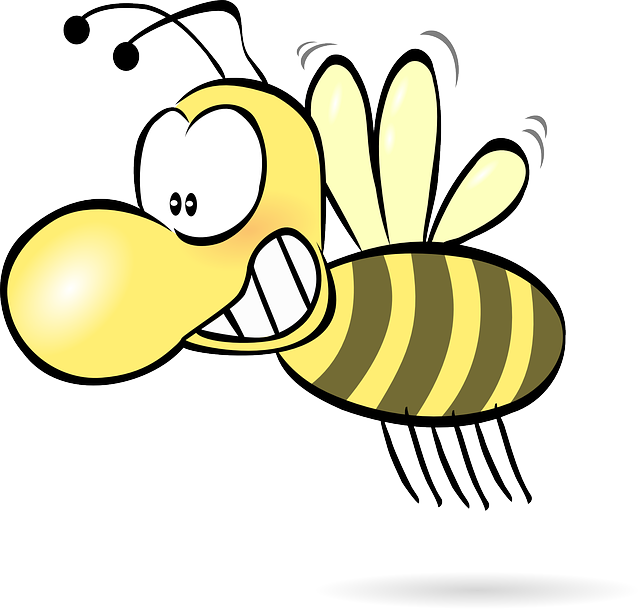Insects play an essential role in a healthy ecosystem, and wasps are especially important due to their ability to pollinate plants. We’ve all heard of honeybees when it comes to pollination—but what about wasps? Do wasps pollinate plants? In this article, we’ll dive into the details of wasp pollination, exploring the ways wasps help plants, the different types of wasps that pollinate, and how these pollinators interact with us. Let’s dive in!
What is Pollination?
Pollination is the process of transferring pollen from one plant to another for cross-fertilization and reproduction. Many plants, including food crops, rely on pollinators such as bees, flies, wasps, and some birds and bats, to move pollen from one to another. Wasps are especially important pollinators of certain plant species.
Yes, certain types of wasps are great pollinators! They are insects with a variety of tastes and preferences when it comes to plants. While bumblebees are the most famous, wasps can be great pollinators as well. Wasps have the advantage of being smaller than bees, allowing them to get into flowers that are too tight for other pollinators. They also fly quickly, allowing them to transport pollen between flowers quickly and efficiently.
Which Types of Wasps Pollinate Plants?
Most of the wasps that are great pollinators are solitary wasps such as mason bees, leafcutter bees, carpenter bees, and potter wasps. Solitary wasps build their nests alone, so they don’t form hives and don’t produce honey or wax, which is why they are not as well-known as the honeybee for pollination.
How Do Wasps Pollinate?
Wasps play a crucial role in pollinating plants since they fly from flower to flower gathering and distributing pollen. As they feed on nectar, their hairy, pollen-covered bodies of move pollen from plant to plant and assist in the reproduction of plants.
Do Wasps Deliver Pollen in The Same Way as Bees?
No, wasps and bees have different anatomy, which affect the way they deliver pollens. The main difference is the size and shape of their bodies. Wasps have longer, thinner bodies than bees and the hairs on the lower part of their bodies are distributed differently. These details affect the way they gather and transport pollens.
Do Wasps Harm Plants?
No, in general, wasps do not cause any harm to plants. In fact, wasps can be beneficial to plants since they pollinate them. Some species of wasps, however, can damage plants by eating their leaves, flowers, or fruit.
What Do Wasps Need to Flourish?
For wasps to thrive, they need a source of food, water, and shelter. Wasps need a food source that consists of both nectar and insects, which can be found in gardens, arboretums, and yards. They need a source of clean water, such as small puddles or damp soil. Wasps also need shelter in the form of an underground burrow, tree crevice, or plant hollow.
Do Wasps Help Us?
Yes, wasps can help us in several ways. Not only do they pollinate plants, they can also be beneficial in controlling certain pests. Wasps are also a good source of protein which can be used as food or in animal feed.
What Are The Benefits of Wasp Pollinating?
Wasp pollination can help sustain healthy ecosystems, provide us with food, and can also help maintain species diversity. Wasps also produce compounds that can be used as a natural insecticide.
People Also Ask
Why Are Wasps Important?
Wasps are important pollinators, helping plants to reproduce and increase species diversity. They are also beneficial in controlling certain pests. Wasps can also provide us with food, as well as natural insecticide compounds.
Why Don’t Wasps Live in Hives?
Solitary wasps don’t live in hives like honeybees do because they build their nests alone. They don’t produce honey or wax either.
Are Wasps Dangerous?
No, most wasps are harmless unless they feel threatened. However, some species can cause stings or other reactions.
How Many Wasps Pollinate Plants?
It is estimated that 12,500 species of wasps are pollinators, although only a small portion of them are recognized as such.
Do Wasps Pollinate Flowers?
Yes, wasps pollinate flowers. As they feed on nectar, their pollen-covered bodies move pollen from flower to flower, helping to sustain healthy ecosystems.
Final Words
Wasps have been largely overlooked as pollinators, but they play a crucial role in sustaining plant and crop production. Not only do they pollinate plants, they are also beneficial in controlling certain pests and can provide us with food, as well as natural insecticide compounds. Wasps can be both beneficial and dangerous, so it is important to understand their importance and take precautionary measures.

